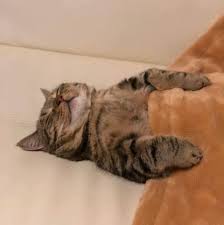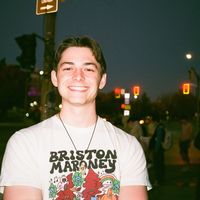Activity
Mon
Wed
Fri
Sun
Jan
Feb
Mar
Apr
May
Jun
Jul
Aug
Sep
Oct
Nov
What is this?
Less
More
Memberships
Somnus Performance
Public • 16 • Free
Sleep Stakes
Private • 3 • $15/m
8 contributions to Somnus Performance
Working with Nic made me realize why my sleep sucked
I had a WHOOP for a few months before doing the course. My recoveries were rarely in the green and I knew my sleep was not where I wanted it to be. As a business kid, I knew little to nothing about the scientific background of sleep. Thanks to Nic and his coaching, I’ve realized many factors leading to my poor sleep. Since working with Nic, I have implemented new protocols into my sleep/morning routine. Some examples are wearing a sleep mask, not eating large meals before bed and spending 2 minutes in sunlight immediately after waking up. Now it’s rare my sleep ISN’T amazing, my recovery is 10-30% better and I feel more consistent energy throughout the day. I could not recommend this course more! Nic is an amazing coach, he is patient, kind and full of knowledge.
0
0
Orthosomnia - the paradox of pursuit
Last night I had the best sleep I've had in weeks. And unfortunately, I achieved it by breaking one of our foundational principles of Snooze Fest. Last night... (this is hard to type out)... I didn't wear my whoop. In fact, I didn't wear it the night before either. Here's why. Measurement is awesome. Actigraphy (the method of measurement Whoop and other wearables use) is a really powerful tool at giving us feedback, which is essential for growth (See Intro to Whoop on day 1 to hear all about that). But sometimes, striving for perfection can be dangerous. Orthosomnia is a relatively new term that describes this situation best. A British peasant from the 1700s would've never experienced this problem: orthosomnia is defined as "an obsessive pursuit of optimal sleep that is driven by sleep tracker data that may lead to worse sleep". This new concept has yet to be studied in depth, given tracking sleep with wearables has only really become widespread in the last 10 years, but it is real, and I have felt it. I live, eat, drink, breathe and dream sleep. That's my job. And I love it. But it also means there's an incredible pressure to get perfect sleep every night. How could I help people get better sleep when mine is garbage? Orthosomnia seems to be a mix of psychological and physiological effects. The idea is that the mind, preoccupied on worrying about sleep, pumps the body with a dose of cortisol and activates your nervous system. This keeps your body and your brain awake doing the exact opposite of our goal - a classic paradox of pursuit. The body, then, which loves ritual, pattern formation and habit, will make this the norm. Getting in bed no longer means falling asleep, but it means stressing about sleep. So what do you do with this double-edged sword? Great question. I've been wearing my whoop for 8 months now, so this feels weird to, but I've simply stopped wearing it. And it worked. I slept incredibly well yesterday. This is not to say that I'll never put it back on. But for now, I need to retrain my body to associate bed with falling asleep rather than thinking about falling asleep.
1
2
New comment Aug 20

0 likes • Aug 20
Interesting read, I haven’t had this issue wearing a whoop. Probably because I’m simply too tired to even strive for “perfect” sleep. I don’t look forward to seeing my score in the morning, I just do. Stressing over getting perfect sleep would most likely lead to poor sleep quality. High stress = longer times to fall asleep and poor sleep performance.
Cooking Versus Baking
Last night I was listening to a Modern Wisdom podcast episode (Ep #822 with Dr. Andy Galpin) and found the following thought quite intriguing: Some people are bakers, and some people prefer cooking. Give a cook a baking recipe and they'll find it too rigid, but tell a baker to cook and he won't know where to start. What does this have to do with sleep? Think of it this way: - Baking is precise. You need to follow the exact recipe or your pastry will be too salty, to doughy, or just look awful. On top of that, you need to follow the steps perfectly. Timing is essential. - Cooking, on the other hand is loose. You can adjust your food to taste, throw in an extra ingredient here or there, and often, you cook by intuition rather than reading a recipe. For some people (Bakers), following their morning and nightly routine is more like baking. Your 90 minute sleep routine needs to be perfect, and your sleep is perfect too. That being said, if for whatever reason you can't perform your routines, this can lead to anxiety and ultimately, worse sleep. For others, they have a looser sleep style (Cooks) and often just go with the flow of the situation, and can still get really good sleep. The problem with cooks is that they may very well be missing some ingredients to really get the best outcome. The solution: Get good at both, and focus on the style that suits you best. Without knowing the recipe for a perfect sleep (the science and protocols), cooks might miss out. Without having a bit of resilience and flexibility, bakers might harm their sleep due to the stress of trying to be perfect. I hope that makes sense and wasn't just a crazy ramble. What kind of sleeper are you? Let me know below. (I'm a baker at heart, learning to cook)
0
2
New comment Aug 16

Ready for boot camp!
Hello! My name is Gabriel or Gabe Cho. I've joined the 21 day sleep and energy bootcamp to take control on my biology and be able to live at my physiological best. I'm committing to myself for these 21 days, prioritizing my health and wellness. As someone who has always struggled with feeling “refreshed after sleeping,” I’m very excited to see my progress.
1
1
New comment Jul 17
Wearing a sleep mask has drastically improved my sleep
Recently, thanks to Nic who recommended a sleep mask to me, my sleeps have been much more restful. Living in a condo, there is a lot of city light that subconsciously woke me up throughout the night. And in the mornings, I would be blasted with sunlight. I noticed on my sleep performance on WHOOP I was awake for close to 10% of my sleep, which seemed quite high. Since using a sleep mask consistently every night I’ve noticed 2 major changes. 1. The initial complete darkness has helped me fall asleep faster. 2. I am sleeping for more time (on average) and on my WHOOP my time awake has gone down from 10% to 3-5%. Now it feels weird sleeping without a sleep mask. I don’t think I’ll ever go back to sleeping without one on. I recommend everyone to wear a sleep mask. It has supremely helped my sleep and recovery.
1
1
New comment Jul 16

1-8 of 8
@gabriel-cho-4291
I am a 23 year old new grad and new to the working world.
Active 7d ago
Joined Jul 5, 2024
powered by


